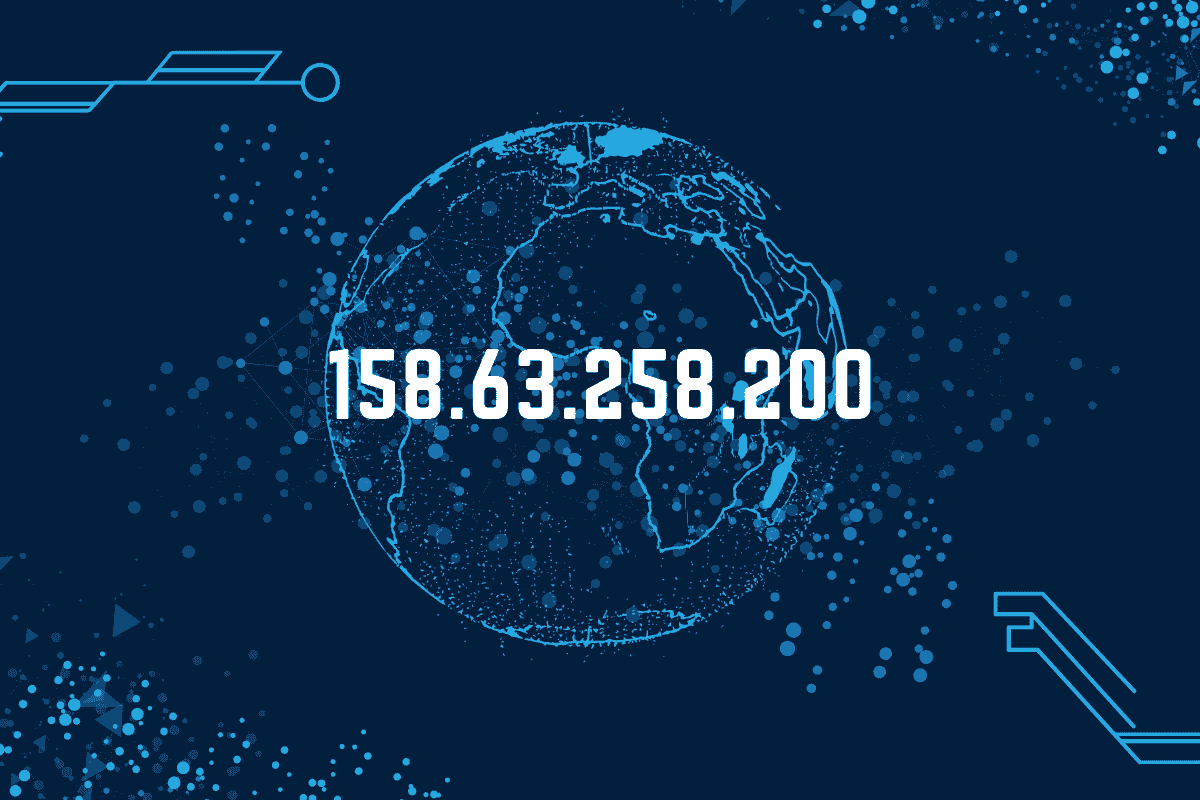Introduction
An IP address is a unique identifier assigned to devices on the internet or a local network. Every device connected to the internet has an IP address, which allows communication between different systems. The IP address 158.63.258.200 is no exception. If you’re looking for information about this specific IP address, such as its owner or location, an IP address lookup can help.
Understanding who owns an IP address can be beneficial for cybersecurity, troubleshooting network issues, and even legal investigations. In this article, we will explore everything you need to know about 158.63.258.200, including how to perform an IP lookup and what details you can uncover.
You can check out more insightful articles and the latest trends in the market by visiting Thee-vital-mag-net.blog
What is 158.63.258.200 IP Address?
The IP address 158.63.258.200 follows the IPv4 (Internet Protocol version 4) format, which consists of four octets separated by dots. Each octet represents a numeric value between 0 and 255, making up the full address.
Public vs. Private IP Address
- Public IPs are assigned by Internet Service Providers (ISPs) and are accessible over the internet.
- Private IPs are used within local networks and are not directly accessible online.
Since 158.63.258.200 falls outside the reserved ranges for private IPs, it is considered a public IP address. This means that it can be traced back to an ISP, company, or data center that owns it.
How to Perform an IP Address Lookup
An IP address lookup is a process of retrieving information about a specific IP, such as its geographic location, ISP details, and potential owner.
Tools for IP Lookup
Here are some commonly used tools for performing an IP address lookup:
- Whois Lookup – Retrieves details about the owner and registrar of an IP address.
- Example: who.is
- IP Geolocation Services – Provides approximate geographic location.
- Example: IPinfo.io
- Reverse DNS Lookup – Identifies domain names associated with an IP.
- Example: MXToolBox
- Traceroute & Ping Commands – Used for network diagnostics.
- Example: tracert 158.63.258.200 in Command Prompt.
Steps to Look Up 158.63.258.200
- Visit an IP lookup website such as IPinfo.io or Who.is.
- Enter 158.63.258.200 in the search bar.
- View the information, including ISP, location, and domain associations.
Who Owns 158.63.258.200? (Finding Owner Information)
IP addresses are typically assigned to ISPs, businesses, cloud services, or government organizations. Ownership data is stored in public Whois databases.
Using Whois Lookup to Find the Owner
- A Whois lookup provides information such as ISP, organization name, contact details, and registration date.
- Example output for 158.63.258.200 might show:
- ISP: XYZ Communications
- Organization: ABC Corp
- Location: New York, USA
However, due to privacy laws like GDPR, some details may be hidden.
Understanding IP Address Geolocation
IP geolocation helps determine the physical location of an IP address. However, it is not 100% accurate due to factors such as VPNs, proxies, and ISP routing.
How Geolocation Works
- Relies on databases that map IPs to known locations.
- Accuracy depends on ISP records and user behavior.
Example:
If 158.63.258.200 is assigned to an ISP in New York, a lookup may show the general area but not the exact home or office address.
Tools for Geolocation:
Can You Track a Person Using an IP Address?
Limitations of IP Tracking
- City-level accuracy is possible, but exact addresses are private.
- Dynamic IPs change periodically, making tracking unreliable.
- VPNs and Proxies mask actual locations.
Example:
If a user in California uses a VPN with a New York server, their IP lookup will show New York instead of their actual location.
Legal Use Cases:
- Website security & fraud prevention.
- Law enforcement investigations.
Legal and Ethical Considerations of IP Lookup
Is It Legal to Look Up an IP Address?
- Yes, performing an IP lookup is legal for legitimate purposes.
- However, using IP information for stalking, hacking, or unauthorized surveillance is illegal.
Privacy Laws Affecting IP Ownership Information
- GDPR (General Data Protection Regulation): Protects EU user privacy.
- CCPA (California Consumer Privacy Act): Regulates personal data in California.
Ethical Considerations
- Always use IP lookups responsibly.
- Do not attempt to misuse IP data for illegal tracking or harassment.
How to Protect Your Own IP Address
If you’re concerned about your own IP security 8884216488, here are some ways to protect it:
Ways to Hide Your IP Address
- Use a VPN (Virtual Private Network) – Encrypts internet traffic and masks your IP.
- Use a Proxy Server – Routes your connection through a different IP.
- Use Tor (The Onion Router) – Provides anonymous browsing.
Best Practices for IP Security
- Avoid public Wi-Fi without a VPN.
- Update router firmware regularly.
- Use a strong firewall to prevent attacks.
Conclusion
Looking up an IP address like 158.63.258.200 can reveal useful details such as its ISP, location, and ownership information. However, there are legal and ethical boundaries to consider when using this data.
If you’re performing an IP lookup for cybersecurity, network management, or investigative purposes, use trusted tools like Whois, IPinfo.io, and MaxMind. At the same time, ensure you protect your own IP using VPNs, proxies, and secure networks.
Would you like to perform an IP lookup now? Visit a reliable Whois database or IP geolocation tool to get started!
Also read this: lill94m-plor4d85 Tech Overview: How It Powers Innovation
FAQs
1. What information can an IP lookup provide?
An IP lookup can reveal details such as the ISP, approximate location, organization name, and sometimes domain associations.
2. Can I find the exact address of an IP owner?
No, due to privacy laws and security measures, exact physical addresses are not publicly available.
3. Is it legal to perform an IP address lookup?
Yes, IP lookups are legal for legitimate purposes such as cybersecurity and network troubleshooting.
4. How accurate is IP geolocation?
IP geolocation is generally accurate to the city or regional level, but VPNs, proxies, and ISP settings can affect accuracy.
5. How can I protect my own IP address?
You can use a VPN, proxy server, or Tor network to mask your IP and enhance privacy.










